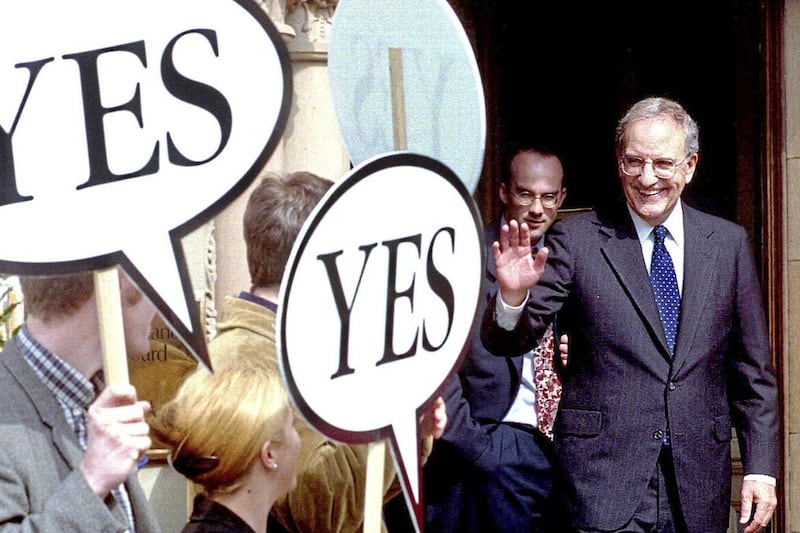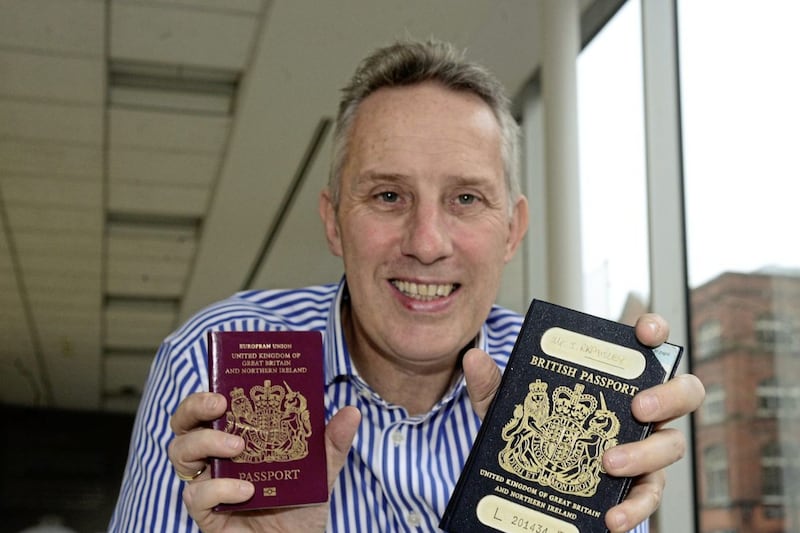When a press office has to issue a statement at two in the morning then you know they have a problem. The sort of problem they know has journalists and political opponents monitoring tweets in the early hours of the morning.
The sort of problem they know could unsettle usually loyal supporters. The sort of problem they know their usually Teflon leader is lying awake thinking about. The sort of problem, in fact, that a press office doesn’t want to have to deal with three days before an election.
Gerry Adams is the master of the bizarre and whimsical when it comes to tweets. He uses them for all sorts of reasons, mostly to do with conjuring up a cosy, comfortable impression of himself. And it seems to be working for he has, at the time of writing, 112,474 ‘followers’—more than any other political leader across Ireland. The thing with Adams is that I’m not sure if the Twitter Adams is the real Adams or just a press office invention; merely another tool in Sinn Féin’s propaganda armoury.
To be honest, I wasn’t outraged by his use of the N word. Django uses the word over a hundred times and Adams’ original tweet was a very poor attempt at humour. We’ve all been there at some point: the unguarded word, the slip, the misspeak, the unintentional use of a very offensive word, a terribly tasteless joke. None of this amounts to irony. It’s called making a mistake; the sort of mistake which can, in the case of a tweet, usually be resolved with a hasty delete and, “Apologies, I can now see how an earlier tweet could have been construed as crude, offensive and stupid. I have removed it. Sorry for any hurt.” (That, by the way, is a 140-character tweet. Easily and quickly done)
Yet it took Adams over two hours after deleting the original tweet to come up with, “Anyone who saw Django would know my tweets and N-word were ironic. Nationalists in the north were treated like African Americans.” Not even the hint of an apology. All he did was make the matter very much worse. Nationalists in Northern Ireland were never the property of unionists. They were never kept on plantations. They were never denied an education. They were never used as slave labour. There was never a law which permitted them to be chained, hobbled and shot on sight. There was never an ‘underground’ which assisted nationalists to escape from their ‘owners’ and take them to a place of safety.
It was a monumentally stupid thing for Adams to say. But it fits in with the self-absorbed, self-deluding autobiographical narrative of himself as the champion of human rights; the man who thinks he set his people free. He did no such thing, of course. That was the work of people like John Hume and Eamonn McCann. They and others led the Civil Rights Movement in Northern Ireland. They were the ones who secured the equality agenda on housing, employment, voting and broader socio/political rights. They were the ones who railed against the damage that an IRA terror campaign was doing to their cause.
Northern Ireland was an imperfect place. But Northern Ireland was never comparable to South Africa or the southern states of America. Nationalists were treated by successive unionist governments as the internal enemy and that, as I have argued before in this column, was wrong and, in terms of promoting the Union, self-defeating. But it’s hugely insulting to the memories of slaves to even begin to compare the brutality of their everyday existence to how nationalists were treated in Northern Ireland.
Adams must know this. He is not a stupid man. He is not a racist, either. But there is clearly an anger in him; the sort of anger which comes from age and realising that while people like Mandela have been lionised, almost canonised, he is still a local footnote when it comes to history. He has enormous political/strategic/literary talent, yet I can’t help thinking that he could have achieved so much more had he taken a democratic path from day one.
Mandela was forced down a particular path because circumstances demanded it. But, as I say, Northern Ireland was not South Africa and Adams is not a Mandela.
He’s at that point in his career when he must be considering his legacy. He’s a proud man and he’s also a vain man. He wants history to be kind to him.
But maybe, just maybe, he should begin to reflect on his own role, the mistakes he made and the things he could have done differently. Rewriting history and reinventing himself serves a shallow interest. He needs to be big enough to reflect on why most unionists—indeed most people outside the ranks of Sinn Féin—view him as they do.










